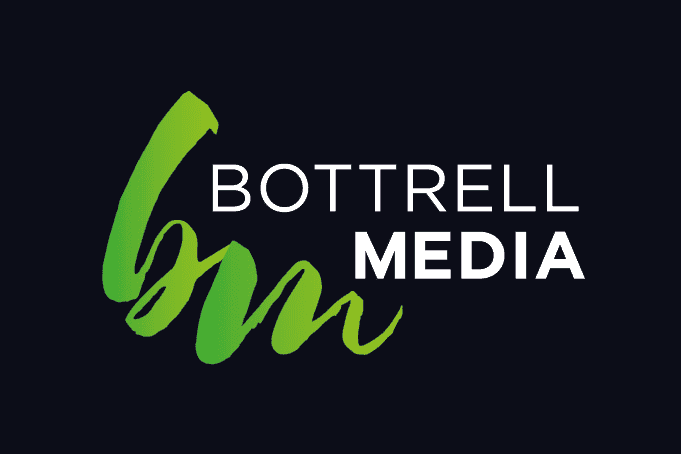
A Guide to E-commerce Web Development: Essentials for Online Success
E-commerce has revolutionized the way people shop, making it easier for consumers to find what they need and buy it from the comfort of their own homes. This has made it essential for businesses to have an online presence, especially in Australia where the e-commerce industry is growing rapidly. As a business owner in Newcastle, Australia, it is important to understand the essentials of e-commerce web development to ensure online success.
Choosing the Right Platform
The first step in e-commerce web development is choosing the right platform. There are several e-commerce platforms available, each with its own set of features, pricing, and complexity. Some popular platforms include Shopify, WooCommerce, Magento, and BigCommerce. It is important to choose a platform that suits your business needs and budget.
Shopify is a popular e-commerce platform that is easy to use and customizable. It offers a range of templates and plugins to help businesses create an online store quickly and easily. WooCommerce is a free plugin for WordPress that allows businesses to turn their website into an online store. It is flexible and customizable, making it a good choice for businesses that already have a WordPress website. Magento is a more complex platform that is suitable for larger businesses with more advanced e-commerce needs. It offers a range of features, including multi-store management and advanced payment options. BigCommerce is a cloud-based platform that offers a range of features and integrations, making it a good choice for businesses that need to scale quickly.
Designing a User-Friendly Website
Once you have chosen your e-commerce platform, the next step is to design a user-friendly website. A well-designed website can make a huge difference in terms of user experience and conversion rates. It should be easy to navigate, visually appealing, and optimized for mobile devices. It should also be easy to find products and checkout with a simple and secure payment gateway.
One of the key elements of a user-friendly e-commerce website is the layout. The website should be organized and easy to navigate. Products should be categorized logically and displayed in a way that is visually appealing. Customers should be able to find what they are looking for quickly and easily.
Another important aspect of website design is the use of high-quality images. Customers are more likely to buy a product if they can see it clearly. It is important to use high-quality images that show the product from multiple angles. This will help customers get a better understanding of the product and make an informed buying decision.
The checkout process is another important aspect of website design. The checkout process should be simple and easy to understand. It should not require customers to create an account or fill in unnecessary information. Customers should be able to complete the checkout process in a few simple steps.
Optimizing for SEO
Search engine optimization (SEO) is the process of optimizing your website for search engines to increase visibility and organic traffic. This can be achieved through on-page optimization, such as optimizing page titles, meta descriptions, and content, as well as off-page optimization, such as link building and social media marketing.
On-page optimization is important because it helps search engines understand what your website is about. This includes using relevant keywords in page titles, meta descriptions, and content. It is important to use keywords naturally and not to overuse them, as this can be seen as spammy and result in penalties from search engines.
Off-page optimization is important because it helps build authority and trust with search engines. This includes building high-quality backlinks from reputable websites, as well as promoting your website on social media. It is important to focus on building high-quality links rather than quantity, as this can have a bigger impact on search engine rankings.
Ensuring Website Security
Website security is essential for e-commerce websites. Customers need to trust that their personal and financial information is secure when making a purchase. This can be achieved
by implementing security measures such as SSL certificates, PCI compliance, and using a secure payment gateway.
An SSL certificate is a digital certificate that encrypts sensitive information such as customer names, addresses, and credit card details. This ensures that the information is transmitted securely and cannot be intercepted by hackers. Most e-commerce platforms offer SSL certificates as standard, but it is important to check and ensure that your website has one.
PCI compliance is a set of security standards that businesses must follow to ensure that their customers’ payment information is secure. This includes using secure payment gateways, such as PayPal or Stripe, and not storing any payment information on your website. It is important to ensure that your website is PCI compliant to avoid any penalties or fines.
Using a secure payment gateway is essential for e-commerce websites. A payment gateway is a service that processes credit card payments securely. It is important to use a reputable payment gateway to ensure that customer information is secure. Popular payment gateways include PayPal, Stripe, and Square.
Marketing Your E-commerce Website
Marketing is essential for any business, and e-commerce is no exception. There are several marketing strategies that businesses can use to promote their e-commerce website, including social media marketing, email marketing, content marketing, and paid advertising.
Social media marketing is a great way to promote your e-commerce website and engage with customers. It involves using social media platforms such as Facebook, Instagram, and Twitter to promote your products and engage with customers. It is important to create a social media strategy and regularly post high-quality content to attract followers and drive traffic to your website.
Email marketing is another effective marketing strategy for e-commerce websites. It involves sending targeted emails to customers and subscribers to promote your products and encourage repeat purchases. It is important to segment your email list and send relevant and personalized emails to increase engagement and conversions.
Content marketing involves creating high-quality content such as blog posts, videos, and infographics to attract and engage customers. It is important to create content that is relevant and valuable to your target audience to increase engagement and build brand awareness.
Paid advertising is a great way to drive traffic to your e-commerce website and increase sales. It involves paying for ads on platforms such as Google AdWords, Facebook Ads, and Instagram Ads. It is important to create targeted ads that are relevant to your target audience and have a clear call to action.
Conclusion
E-commerce web development is essential for businesses in Newcastle, Australia, and beyond. Choosing the right platform, designing a user-friendly website, optimizing for SEO, ensuring website security, and marketing your e-commerce website are all essential for online success. By following these essentials, businesses can create a successful e-commerce website that attracts and engages customers and drives sales.
Bottrell Media is a digital agency based in Newcastle, Australia, that provides e-commerce web development services. Our team of experts can help businesses design and develop a user-friendly e-commerce website that is optimized for search engines and secure for customers.
Contact us at @ Bottrell Media
45 Hunter St, Newcastle, NSW 2300.
P: 02 40275782
E: office@bottrellmedia.com.au
Socials & Links for Bottrell Media
Facebook – Bottrell Media Facebook Page
Instagram – Bottrell Media Instagram Page
Google – Bottrell Media Google


